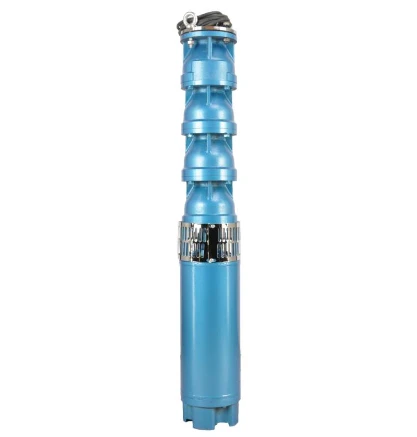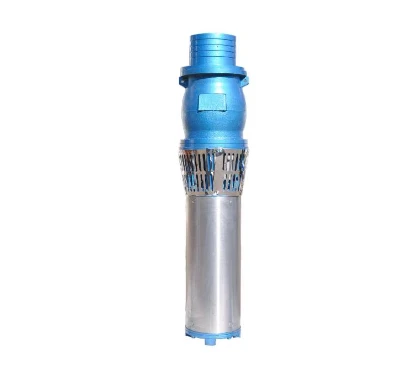Nov . 17, 2024 16:28 Back to list
3 phase borewell motor
Understanding 3-Phase Borewell Motors A Comprehensive Overview
When it comes to agricultural and industrial applications, water extraction is paramount, particularly in regions reliant on irrigation. Borewell motors play a crucial role in this process, especially the 3-phase borewell motors, which are favored for their efficiency, power, and reliability. In this article, we will delve into the specifics of 3-phase borewell motors, exploring their features, advantages, applications, and maintenance.
What Are 3-Phase Borewell Motors?
A 3-phase borewell motor is an electric motor designed to pump water from underground sources via borewells. Unlike single-phase motors, 3-phase motors utilize three alternating currents to produce a rotating magnetic field. This setup allows them to operate more efficiently, making them ideal for heavy-duty applications. These motors can vary in size, power output, and design depending on the specific requirements of the borewell and the intended application.
Features of 3-Phase Borewell Motors
1. High Efficiency 3-phase mechanisms generally exhibit greater efficiency than their single-phase counterparts. This efficiency translates to reduced power consumption, which is particularly beneficial for farmers and industries aiming to cut operational costs.
2. Power Output 3-phase borewell motors are available in various power ratings, typically ranging from 1 HP (horsepower) to over 200 HP. This versatility allows for applications in both small-scale and large-scale operations.
3. Durability and Longevity Built with robust materials, these motors are designed to withstand harsh environmental conditions, including prolonged exposure to moisture and dust. This durability ensures a longer lifespan, resulting in lower maintenance costs over time.
4. Smooth Operation The three-phase power supply provides a smooth and stable performance. This operational consistency reduces mechanical stress on the motor and increases reliability.
5. Varied Speed Options Different speed ratings are available for 3-phase borewell motors. Users can select motors that run at optimal speeds for their specific pumping needs, ensuring maximum efficiency and output.
Advantages of Using 3-Phase Borewell Motors
- Reduced Vibrations The balanced nature of 3-phase motors leads to less vibration during operation, minimizing mechanical wear and enhancing performance.
- Higher Torque These motors deliver higher starting torque, making them suitable for applications where heavy loads need to be moved immediately upon starting.
- Cost-Effectiveness Although the initial investment for a 3-phase motor may be higher than a single-phase version, the enhanced efficiency and lower operational costs ultimately lead to greater cost savings.
3 phase borewell motor

- Lower Maintenance Needs With fewer electrical and mechanical issues compared to single-phase motors, 3-phase borewell motors require less frequent servicing, saving time and money for users.
Applications of 3-Phase Borewell Motors
3-phase borewell motors are widely used in various sectors
- Agriculture These motors are critical for irrigation systems, enabling farmers to draw water from deep underground sources efficiently.
- Industrial Uses Factories and industrial operations utilize these motors for water supply systems, cooling systems, and various manufacturing processes.
- Municipal Services Local governments employ 3-phase borewell motors in the public water supply systems to ensure reliable access to clean water.
Maintenance Tips for 3-Phase Borewell Motors
To ensure optimal performance and longevity of 3-phase borewell motors, regular maintenance is essential
1. Regular Inspections Conduct routine checks for any signs of wear or damage. Inspect the electrical connections, bearings, and seals to identify potential issues before they escalate.
2. Clean Cooling Components Keep the motor’s cooling system clean to prevent overheating. Debris can restrict airflow, leading to inefficient operation.
3. Monitor Performance Keep an eye on the motor’s performance indicators such as temperature, noise, and vibration. Unusual readings may signal the need for immediate attention.
4. Avoid Dry Run Ensure that the motor is always submerged in water or adequately supplied during operation to prevent pump failure.
In conclusion, 3-phase borewell motors represent a vital technology for water extraction across several sectors. Their efficiency, durability, and low maintenance requirements make them a preferred choice for agricultural and industrial applications. Understanding these motors can help users make informed decisions that optimize their operations and resources effectively.
-
Submersible Well Pumps Buying Guide
NewsMay.14,2025
-
Submersible Sump, Dirty Water, Borehole Pumps Demystified
NewsMay.14,2025
-
Stainless Steel Submersible Pumps Superior Performance
NewsMay.14,2025
-
High Flow Submersible Well Pumps Essential Features
NewsMay.14,2025
-
Choosing the Best Stainless Well Pump
NewsMay.14,2025
-
A Comparison of Submersible Pumps Filled with Water and Oil
NewsMay.14,2025
-
 Submersible Well Pumps Buying GuideReliable access to clean water is fundamental for residential, agricultural, and commercial operations, making the selection of an appropriate well pump system one of the most important infrastructure decisions.Detail
Submersible Well Pumps Buying GuideReliable access to clean water is fundamental for residential, agricultural, and commercial operations, making the selection of an appropriate well pump system one of the most important infrastructure decisions.Detail -
 Submersible Sump, Dirty Water, Borehole Pumps DemystifiedThe world of water management has undergone a technological revolution, with advanced pumping systems now offering unprecedented efficiency and reliability across diverse applications.Detail
Submersible Sump, Dirty Water, Borehole Pumps DemystifiedThe world of water management has undergone a technological revolution, with advanced pumping systems now offering unprecedented efficiency and reliability across diverse applications.Detail -
 Stainless Steel Submersible Pumps Superior PerformanceModern water extraction and fluid handling systems demand equipment capable of withstanding harsh environments while maintaining peak efficiency.Detail
Stainless Steel Submersible Pumps Superior PerformanceModern water extraction and fluid handling systems demand equipment capable of withstanding harsh environments while maintaining peak efficiency.Detail
